50% of new smartphone buyers choose Android

What's up with analysts skewing Android survey results, today? Are they looking for headlines by releasing contrary data? IDC kicked off the morning by asserting that developer interest in Android had plateaued; I disagree, using IDC's own data as evidence. Now Nielsen is overemphasizing Android's U.S. smartphone adoption gains, which would be impressive enough without the little kick.
From a purely statistical perspective, Nielsen strangely compares July-September 2010 to January-March 2011. Typically, analysts compare year over year or quarter to quarter. Android ranked as most desired smartphone OS -- 33 percent, up from 26 percent, when comparing the two time periods. Interest in iPhone fell from 33 percent to 30 percent, while BlackBerry declined from 13 percent to 11 percent. The data is for U.S. consumers planning to buy a new smartphone.
How much is fragmentation hurting Android?

Too much -- that's the supposed takeaway from a survey of 2,700 developers conducted just two weeks ago. My interpretation is different: Not much at all, based on developer responses.
Sixty-three of respondents cited fragmentation as the major risk facing Android, while another 30 percent cited weak, early sales of tablets running Google's mobile OS. IDC conducted the survey with Appcelerator. I'm no fan of joint analyst-vendor surveys, because of conflict of interest (The obvious question is "Who paid?" for the survey). The registered symbol after Appcelerator's name is a dead giveaway about who approved the press release.
Where is my ala carte cable TV?

Over the weekend, I started looking at how realistic would be cutting my IPTV provider and replacing it with over-the-air broadcasts and Internet steaming from services like Hulu Plus and Netflix. Most anyone else would be looking to ditch a cable provider like Comcast, Cox or Time Warner. I have AT&T U-verse -- since February 2008. My U-verse bill for Internet and TV was $140 last month, and that's simply more than I can afford to spend. I'm not fully employed.
The problem, I realize, is that U-verse (or Cox, the other option) offers too much of what I don't want and not enough of what I do. I'd rather pay something like 80 bucks a month, even 100, for Internet and handful of channels and streaming services that my family would regularly watch. Perhaps cable providers don't see the profit opportunity in such an approach, or maybe it would be logistically too difficult to offer such choice or to mange its billing.
PlayStation Network still down, Sony says task of bringing it back up is 'time consuming'

The devastating PlayStation Network outage continues unabated today, with Sony issuing a long-overdue new statement. Patrick Seybold, Sony senior director of Corporate Communications & Social Media, posted the update to the PlayStation Blog, as the network outage entered its fourth full day.
"We sincerely regret that PlayStation Network and Qriocity services have been suspended, and we are working around the clock to bring them both back online," Seybold writes. "Our efforts to resolve this matter involve re-building our system to further strengthen our network infrastructure. Though this task is time consuming, we decided it was worth the time necessary to provide the system with additional security."
Firefox 4 downloads top 100 million

This morning, when seeing the date on my watch, I realized that about a month had passed since Mozilla released Firefox 4. I wondered how many downloads since the March 22nd launch. Geez Louise, it's more than 100 million, according to the Firefox 4 stat counter, and climbing fast.
Firefox 4 started strong out of the gate with 6 million downloads in the first 24 hours. By comparison, Internet Explorer 9, which launched about a week earlier, had just 2.35 million downloads. But in fairness, IE9 has a disadvantage -- it's not available for Windows XP. Yesterday, Microsoft touted 350 million license sales during Windows 7's first 18 months, but a sale isn't a deployment and doesn't mean running IE9 either. Additionally, XP is still the most widely-used Windows version.
Will you drop Dropbox over terms-of-service changes?

Courtesy of our colleagues at Softwarecrew, on Wednesday we posted a story about Dropbox terms of services changes that came as a surprise, if for no other reason than the service's earlier assertions that employees couldn't access subscribers' files nor anyone not authorized by the user. Suddenly that's changed, with Dropbox stating it will open your stuff to law enforcement. I put a poll in the story, and we asked your reaction to the changes. The results are in, and you're not happy.
"This is why you can't trust cloud anything when it comes to data privacy," writes commenter LurkerLito. "If it goes to the cloud you need to encrypt it yourself with your own trusted encryption program. No matter how much people assure you that their stuff is only accessible by you because of their encryption, that is never really true unless you encrypt it with your own tools."
Will Microsoft's new employee compensation plan be the bomb, or will it just bomb?
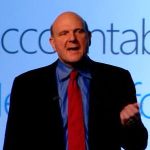
Today, Microsoft CEO Steve Ballmer dropped the human resources equivalent of an atomic bomb on Redmond, Wash. The company will change how employees are reviewed and compensated. The changes are effective during September evaluations and will put more emphasis on cash compensation rather than stock rewards and simplify criteria used to evaluate performance. The changes reaffirm my renewed confidence in Ballmer, something I blogged about just three days ago (not that most anonymous commenters to the Mini-Microsoft blog agree).
For years, I've heard Microsoft employees moan about the convoluted evaluation process, which often puts them at the mercy of middle managers more interested in keeping their jobs than doing right by the company. The changes could fix some of the middle manager mayhem and prevent poaching from the likes of Amazon, Facebook or Google. But the devil is in the details, as they say.
AT&T and Verizon iPhone sales are nearly the same -- 40,000 per day
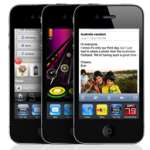
This morning, before the opening Bell, Verizon released first quarter earnings results, finally disclosing iPhone 4 activations -- 2.2 million since the device's February 11 launch. That's 44,898 activations per day for 49 days availability. However, Verizon started taking preorders a week earlier. By that measure, activations were 39,286 per day. Yesterday, AT&T revealed, as part of Q1 earnings, 3.6 million iPhone activations, which works out to 40,000 per day for the quarter.
Near equal sales is great news for Apple and Verizon, and really not terrible for AT&T (although there is some trouble in the numbers). Contrary to persistent punditry on the InterWebs, the numbers show no perceptible subscriber losses for AT&T. Before Verion iPhone's launch, for example, ChangeWave predicted that 26 percent of AT&T iPhone users would switch to Verizon. Other analyses predicted even higher defections -- some close to 50 percent. AT&T iPhone activations rose 1 million units year over year, with churn -- that is subscribers switching to another carrier -- flat Q1 to Q1.
Apple Q2 2011 by the numbers: Record $24.67B revenue and 95% profit growth
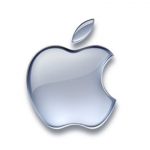
[Editor's Note: This is a live document from 4:49 p.m. EDT until 6:20 p.m. ET, following the end of Apple's earnings call.]
Coming into today's Apple fiscal 2011 second quarter earnings report, amateurs and professionals debated what impact iPad 2 and Verizon iPhone 4 launches would have on the results. Apple has answered them, once again sweeping past Wall Street consensus. Suddenly, Apple's Mac business looks puny alongside iOS.
3.6 million AT&T iPhone activations debunk claims subscribers are fleeing to Verizon

It's the official iPhone first quarter 2011 shipments day. AT&T announced earnings before the bell, and Apple will do so after the market closes. For all those prognosticators predicting a huge exodus of iPhone users from AT&T to Verizon, please accept my big, wet, splatter-in-your face raspberry. Yum.
During Q1, AT&T activated 3.6 million iPhones, up 1 million, or 23 percent, year over year. Three months earlier, AT&T activated 4.1 million iPhones. The 500,000 unit decline reflects seasonal changes more than any substantive competitive sales impact from Verizon iPhone. Important metric: AT&T said that iPhone churn, meaning subscribers switching carriers, was about the same as Q1 2010. Total churn for all categories was 1.36 percent, up slightly (1.3 percent) year over year. Churn was 1.32 percent in Q4 2010.
Moleskine for iPad: Write at your own risk
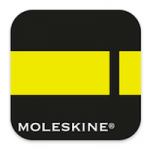
Writing is what I do for a living, but also for enjoyment. So I was intrigued when Moleskine for iPad popped up in Apple's App Store on April 15, 2011 (It's available for iPhone, too). The Moleskine notebook is the legendary journal of great writers.
Moleskine uses Ernest Hemingway in its marketing. He's not around to complain or dispute the pocket journal's value to him as a writer. During 1920s, Hemingway frequented several Paris cafés where other artists also used the journal to jot down thoughts, stories and sketches. Of course, this mystique is all marketing now. Use Moleskine, too, and you can be a great writer -- or at least feel part of the select community of artists.
Apple's iOS crushes Android's mobile platform reach

"Blah, blah, blah" is the sound of analysts, bloggers and reporters sounding off about how Android handsets outsell iPhone -- true Google's OS is like Pac-Man gobbling smartphone market share. But cell phones are but one category among several vying to become the PC's platform successor. By that measure, at least in the United States, iOS' reach exceeds Android's by more than 59 percent, according to ComScore on "connected media devices" -- what I have longed called cloud-connected mobile devices.
ComScore measured the U.S. "unduplicated" install base of Android and iOS devices -- 23.8 million and 37.9 million, respectively. Apple claims to have shipped more than 100 million iOS devices -- iPads, iPhones and iPod touches -- but that's globally, and not all may still be in use. Assuming ComScore's methodology is accurate, install base is a good measure.
i4i chairman speaks candidly about Microsoft patent infringement case

There's a strange irony about i4i's patent case against Microsoft. Yesterday, lawyers representing both companies pled their different positions before the U.S. Supreme Court -- in one of the most important, and potentially precedent-setting, patent cases in recent memory. Microsoft' defense is essentially an indictment of the patent system, including operations of the U.S. Patent and Trademark Office. Strangest coincidence: The agency was one of i4i's earliest and largest customers for the patented technology in dispute.
"The USPTO itself was the organization that realized the potential of the innovation of what we were doing," says i4i Chairman Loudon Owen. "They were our biggest customer, and the biggest rollout in history. It's a pretty cruel joke to turn around now and say that the patent office didn't understand the industry, considering they were investing an enormous amount trying to manage the whole patent process through our technology."
Steve Ballmer has restored my confidence in his leadership
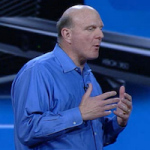
Surprisingly, it only took 10 months. I just figured we were done.
As a long-time supporter of Microsoft's CEO, my June 2010 commentary "I have lost confidence in Steve Ballmer's leadership" came as a surprise. At the time, Windows Mobile was a train wreck; iPad launched to huge success, leaving Microsoft clueless; and Apple's market capitalization exceeded Microsoft's.
Who is cutting cable for Hulu, Netflix and OTA?

I started the week by asking "Would you cut cable for Netflix?" I end it with your responses to the question.
This all started with a report from Convergence Consulting Group stating that, since 2008, 1 million U.S. household cut cable's cord and switched to over-the-air broadcasts and online streaming. The consultancy expects the number to reach 2 million by year's end. I've been thinking about doing the same -- and summer, when reruns replace many first-run programs -- is looking like the right time. Perhaps even sooner. And what do you say?
Joe's Bio
Joe Wilcox is BetaNews executive editor. His motto: Change the rules. Joe is a former CNET News staff writer, JupiterResearch senior analyst, and Ziff Davis Enterprise Microsoft Watch editor.
Ethics Statement© 1998-2025 BetaNews, Inc. All Rights Reserved. Privacy Policy - Cookie Policy.
